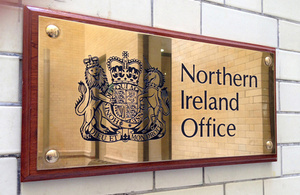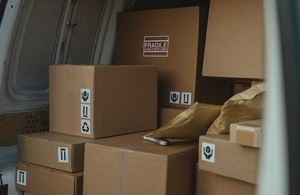Government to look at ways new high-tech materials could advance UK industry
- Call for evidence launched to help inform the government’s approach to advanced materials
- advanced materials are critical for future economic and tech growth and include self-healing, ‘living’ materials and 2D materials made from a single layer of atoms
- government will also establish an Advanced Materials Scoping Group, made up of industry and academic leaders to provide independent, expert advice
The government has today (10 February) launched a call for evidence to gather insight and shape the UK’s approach to advanced materials – high performance engineered materials that will be critical to the future success of many industries.
As set out in our Innovation Strategy, advanced materials are artificially manipulated, often at the atomic level, to give them enhanced abilities and vastly improved performance, such as increased strength, electrical and thermal properties, compared to conventional materials.
Industry Minister Lee Rowley said:
Advanced materials can survive the harshest conditions, enable enhanced durability and manufacturing opportunities, and even ‘heal’ themselves.
That is why we have launched a call for evidence – to gather insight and inform our approach to these extraordinary materials that could have a transformative impact on our daily lives and economic opportunities.
Examples of advanced materials include:
- metamaterials: artificially structured composite materials with unique electromagnetic properties that could transform the communications industry by enabling compact, lightweight 5G antennas that are easier to manufacture, ship and install
- 2D materials: formed with only a single layer of atoms, which can contribute to more efficient batteries for electric vehicles, strengthen traditional materials, and have novel electrical and superconducting applications
- self-healing and ‘living’ materials: systems that change shape or structure over time, including self-repairing in response to degradation, such as self-healing roads that fix their own potholes
- composite structures: stronger, more lightweight, and more durable structures, that can be used as coating technologies that enhance materials such as corrosion resistance
An Advanced Materials Scoping Group will be formed to support the government’s work in this area and assess responses to the call for evidence. Members of the group will be recruited from across industry and academia.
The UK already has a world-leading advanced materials science base. The 2010 Nobel prize was awarded to scientists at the University of Manchester for advances in graphene, an ultra-thin, ultra-strong material.
The government has identified advanced materials and their manufacturing as one of the 7 ‘technology families’ of the Innovation Strategy – the government’s plan to ensure the UK’s world-leading science and R&D sector help create a robust and agile economy that works for the whole of the UK.
These 7 ‘technology families’ are transformational technologies that will drive change over the coming decades and where the UK has globally competitive research and development (R&D) and industrial strength. Along with advanced materials, others include AI, digital and advanced computing as well as robots and smart machines.

